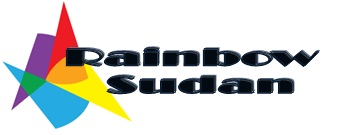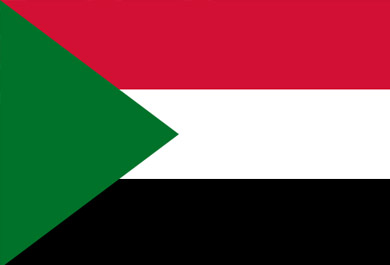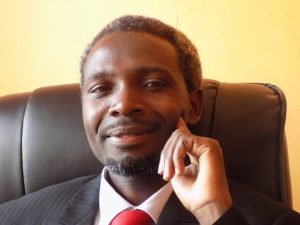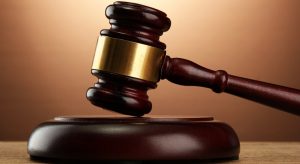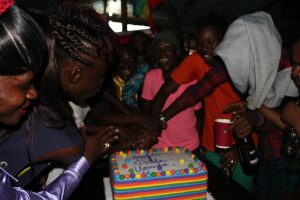By country correspondent:
Although the many achievements and success of the on-going and previous LGBTQI movements and organizations in the West, and Europe the LGBTQI communities in other parts such as Africa still deprived of basic human and social rights. Intolerance and discrimination towards homosexuality is especially in conservative religious countries, such as Sudan is one of the countries that been severely oppressing the LGBTQI communities by criminalizing all homosexual activities or relationships.
In Sudan, homosexuality is clearly in the Islamic Sharia law defined as illegal in the judicial system. According to Article 148 of the 1991 penal code, the law also punishes anyone convicted for anal sex. This applies to both between two men or heterosexual couples. Once convicted, individuals face punishment is lashing, imprisonment and death penalty.
Legal Situation
Lesbian, Gay, Bisexual, and Transgender (LGBT) persons in Sudan face legal challenges not experienced by non-LGBT residents. Both male and female same-sex sexual activity is illegal in Sudan.
Implementation of the penal code
Regardless of the frequency of the implementation of so called sodomy laws, their more existence usually results in a worsened situation for LGBT persons. In Sudan, the accusation of being homosexual is sometimes used to blackmail somebody or to smear political opponents.
Case 1
The case of the 12 Freedom Sudan members
Ali, a co-founder and the president of Freedom Sudan (Sudan LGBT association) wrote about his own terrifying story in the organization website, in April 2009 and while Ali and 11 of his friends (2 women and 9 men) were holding a private party in the residency of one of them, agents from intelligence agency raided their party and caught them all and then took them to an unknown place. There, as Ali tells, each of them was put in solitary confinement “cells of 1.5 meters long walls” he says under highly unsanitary conditions and he was deprived from water and food for 2 days straight.
Case 2
The case of the 19 Cross-dressing men flogged in Sudan for being ‘womanly’
A famous incident took place In August 2010
when 19 men were flogged publically and fined after being caught by Alnezam Alaam (Public Order Police) in a private party celebrating the wedding of two homosexual men in Khartoum. This group of young men have been publicly flogged in the Capital Khartoum after they were convicted of wearing women’s clothes and make-up. The court said the 19 men had broken Sudan’s strict public morality codes.
Case 3
Sudanese Police arrests models after mixed gender fashion show
Sudanese police arrested more than two dozen people overnight as they emerged from the capital’s first ever mixed-gender fashion show.
One young model, among those asked to appear before the prosecution he said after his release that he was insulted by prison guards.
“In prison, the guards called me ‘you gay bitch’,” said the man who asked that his name not be published. “In our culture this is a really bad word. It is humiliating.
Case 4
In the 4th of December 2012 Karary Criminal Court issued under the chairmanship of Maulana Imam Juma Abdullah a strict penalties against three young gay men, the first of them convicted of crimes outrageous acts of seduction and possession of materials and exhibits against public morality. The court convicted the second and third defendants of committing a crime of sodomy under Article (841) of the Criminal Code, and caused the first convicted and send him to prison for (7) years for the crime of seduction after it ascertained from his involvement according to evidence submitted to the court.
Case 5
In 19th of February 2013 9 gay men were arrested, two of them accused of hassle and scandalous acts under Article 77/152 Sudanese criminal law and 5 of them accused of possession of indecent material under Article 153.
The 9 men were celebrating in privet apartment in Khartoum when they got arrested. The police report mention that they found shisha, coffee , drums and mobile phones belonging to the defendants that contains obscene movies and pornographic images which had been captured of the defendants.
Social Situation
Negative attitudes towards homosexuality is common in countries like Sudan. Strong religious and social traditions in many places in the country severely threaten LGBT community members. Living in fear or uncertainty, the violations of human rights, informal discrimination and lack of power that Sudanese LGBT people are subjected to often cause a high level of anxiety and psychological stress among them.
The religious influence
The religious influence on the Sudanese society a country in which more then 60% percent of the population are Sunni Muslims with the dominance of Maliki school teachings, homosexual activities are understood in the context of the Qur’an. The story of the “people of Lot” (also known as the people of Sodom and Gomorrah) cited in the Qur’an is especially important to explain how homosexuality is perceived and treated in Sudan. According to this story, the cities of Sodom and Gomorrah were destroyed by the wrath of God because their citizens engaged in “lustful” homosexual acts. This story has been used in many Islam teachings, and even though different Islam schools offer different answers to the question of how homosexuality should be treated, homosexuality in the Islamic world is widely viewed as synonymous with deviance, pathology and unforgivable sin that will trigger God’s wrath. Among the schools, the Maliki school which is dominant in the Sudan is well-known for its extreme view on homosexual identities and activities. Its teaching that argues that death should the only answer to homosexuals explains the current treatment and the status of the LGBTQI population in the country. Under the name of religion and god, the society denies the existence of LGBTQI population and continuously controls individual’s sexuality both through state law and shame in the private sphere.
Government Attitude
The Sudanese Government voted against ILGA (International Gay and Lesbian Association) application for ECOSOC status in the UN in 2002.Sudan was also one of the countries that voted directly against the UN declaration on sexual orientation and gender identity in 2008.
In November 2010, Sudan voted on an amendment to remove sexual orientation out of a UN document calling on governments to prevent extrajudicial, summary or arbitrary executions. The document was adopted despite objections that Homo- and Transphobia so many times are the motives for extrajudicial killings, and that the removal of the definition will make it even more difficult to ensure that states live up to their legal obligations.
LGBTI rights in Sudan: History and analysis
An article by Ghareeb, a blogger and a member of Sudanese Freedom Sudan, was originally published under a different name in LGBT Asylum News on 15 August 2011. It has been edited for publication in this issue.
In 2009, a Sudanese website called Rumat Alhadag posted an article about the establishment of the Sudanese LGBT Association Freedom Sudan and its goal to improve the rights of LGBT individuals in Sudan. A quick analysis of the replies to this article reveals the following: There were 39 replies (repetitions were not counted). While only four replies reflected positive attitude toward homosexuality and homosexuals, 33 replies displayed a negative — many times very aggressive — attitude toward the issue. However, one reply acknowledged its existence without showing a clear attitude and another one only displayed a surprised feeling. Words used to describe homosexuals included: ‘dregs’, ‘decadents’, ‘immoral’, ‘animals alike’ and ‘salacious’ with calls to for them to ‘be expelled to an empty jungle’, ‘buried alive’ and pursued ‘by authorities’.
Sexual orientation and sexual behavior in Sudanese culture is strongly linked to honor (the honor of the individual and the honors of the group are inseparable). The concept of ‘honor’ is a great and dangerous deal in Sudan; it pushes many people to lie even to themselves if necessary in order to protect it. That is why these attempts to talk freely about homosexuality were met by such enormous denial and aggressive attacks. Even until now after it has started to become less and less a forbidden subject, many people still think that this issue shouldn’t be discussed openly and should be dealt with secretly by security measures only, since, according to these voices, these ‘deviants’ represent only a very small and closed group in Sudan and no one supports them.
Homophobia in Sudan
In the highly charged political climate of Sudan, many political and religious movements used the opportunity of an already existent negative public attitude toward LGBT people and the shock caused by the formation of associations sudan as Freedom Sudan and Rainbow Sudan and for LGBT individuals and also the appearance of LGBT groups on Facebook (i.e. ‘Gay Story in Sudan’, ‘Sudan Next Top Gay’, ‘Sudanese Gays’ and others) to use as an argument against other opponent groups.
Those who consider themselves to be moderate or even liberals or progressive thinkers blame the hypocrisy of the National Conference Party (NCP)* government and its supporters which, as they like to prescribe, while raising the logo of the ‘civilised Islamic project’ have created a proper atmosphere for ‘extraneous and deviant phenomena’ like the ‘spreading’ of homosexuality by forcing a puritanical form of Shari’a** (which was prominent during the ‘90s then started to weaken afterwards) that inhibit the mixing of males and females in public and academic life. This caused the elevation of sexual oppression among both sexes and pushed them to search for the ‘alternative’ (by which they mean homosexuality).
Many of them like to adopt the opinions of some journalists and social thinkers like Mariam Othman and Hanan Aljak who described homosexuality and bisexuality as psychological ailments and attributed them to different factors, such as sexual assaults during childhood; physical or emotional absence of the parent from the same gender; and other socio-economic factors like poverty, ignorance and the rising costs of traditional heterosexual marriage.
Ironically, extremists and fundamentalist Islamist groups like Ansar Alsunna (which has close ties with Saudi Arabia and the thinkers of the strict Hanbali School of Islam which prevails there) also blame the NCP government for its failure to sufficiently implement the Shari’a. They also don’t forget to aim their arrows at their natural enemies (the liberals) for calling for more freedom in the society and separation of religion from politics.
The HIV/AIDS and homosexuals
The Sudanese universities of public health graduates and public health officers (SUPHOF) some members put homosexuality side-by-side with increasing cases of AIDS in Sudan. Additional homophobic statements were made by some members of the National Program for the Prevention of AIDS, where some described homosexuality as a ‘negative mutation’ in sexual practices in Sudan, saying it also contributed to the high increase in AIDS in Khartoum state.
Although they mentioned concurrently that whereas the known HIV cases reached around 10,000 (the estimate is 88,000 cases), the number of homosexuals known to them was only 715 and the estimate prevalence of HIV virus among them was 7.8% — which means, according to their own figures, that there are only around 56 homosexuals infected with HIV. This contradicts their argument about homosexuality and AIDS spreading. The danger with these statements is that it came from a health program that is supposed to be objective and shouldn’t discriminate against any group in order to promote early voluntary examination amongst the community.
Despite all these difficulties and challenges, Sudanese LGBTQI community do exists. Recently, a couple of LGBTQI associations were founded. Freedom Sudan and Rainbow Sudan, founded in 2006 and 2012 respectively, work both online and offline to provide an organized way to enhance the rights of the LBGT population in Sudan. Despite the government’s hostile reaction and the potential danger they face, they remain firm to encourage dialogues related to LGBTQI issues and we aim to be recognized, live with dignity and respect, and raise awareness in sexual education concerning people who are gay, lesbian, bisexual or transgender, intersexual, Queer
Challenges
- The lack of organized activism and resources
- Social Discrimination
- Religious abrasion
- Sodomy Laws
- Internalized Homophobia
Strategic Plans
- Raise awareness among the LGBTQI community
- Empowerment & Capacity development of organizations and activists.
- Psychological and legal Support
